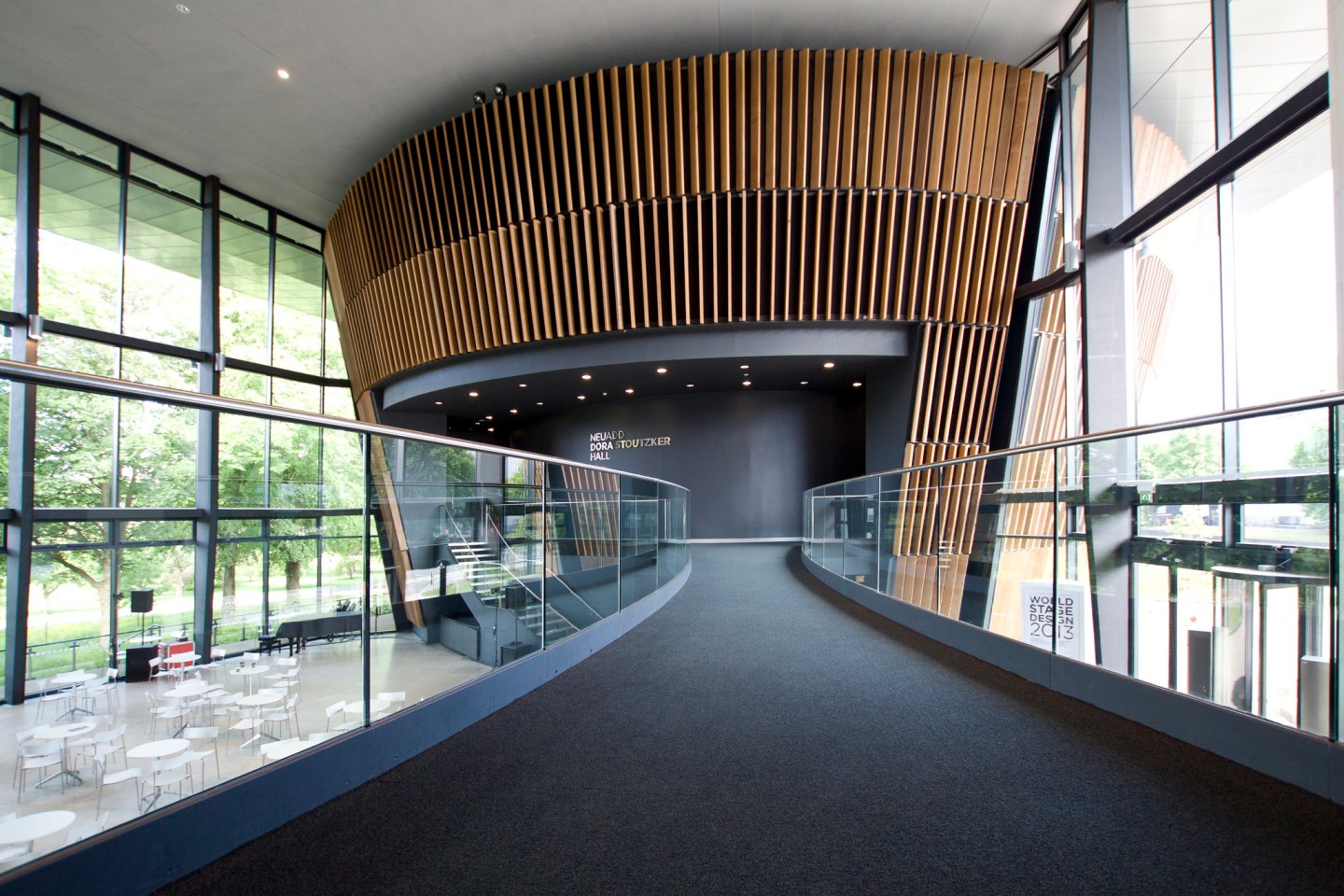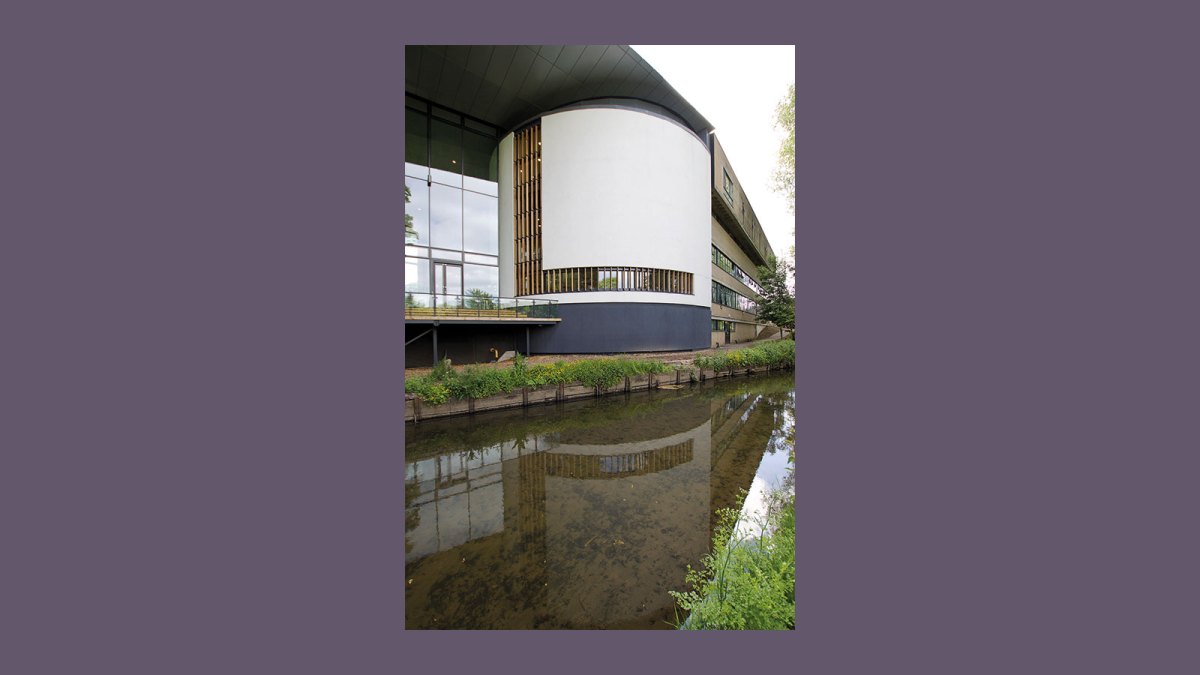The junior department of the Royal Welsh College of Music and Drama closed for the end of term on Saturday. It looks like it will not re-open. 340 children will be affected across the Young Music and Young Drama programs, as well as five salaried staff and a further 112 hourly staff on zero-hours contracts who teach the students on weekends.
Young RWCMD, which caters to students under 18, is subsidized heavily by the College, without support from the Welsh Government or Higher Education Funding Council Wales. And, given the college’s current funding difficulties, RWCMD said they had to prioritize elsewhere. “Our core purpose is as a higher education institution serving students aged 18 and above, and this is what we are funded to do,” a spokesperson for RWCMD told VAN. Though the College said this won’t be the end of their provision to under 18s, campaigners say the closure of the junior department will certainly mean the end of the kind of specialist, high-level training for youth—an essential part of the classical music performance pipeline—at the country’s only conservatoire.
The College is far from alone in being a higher education provider facing an uncertain financial future, but there are a few things that don’t quite add up with this case. According to the RWCMD spokesperson, the move will save the College £200,000, adding that the cumulative saving from cutting Young RWCMD is “very significant as a proportion of the savings we need to find.” (They need to cut 10% of their operating costs per year, and at least a further 10% in the next two years.) Yet, judging from their most recent accounts, the savings from closing the junior department represents less than 10% of the total £2.27 million the College needs to find this year. Whether this is a significant proportion is debatable.

Until recently, the College seemed on solid budgetary footing. “Despite the challenges from the tail of the COVID-19 pandemic and the current levels of inflation, the College has continued to operate in line with budget,” the financial strategy section of its November 2023 report reads. The “underlying financial position remains robust with healthy cash reserves and net assets to continue to operate effectively and in line with the College’s Strategic plan.” Total net assets were up, reserves were stable, and commercial operations had returned to a pre-pandemic level too. The amount the College gained through fundraising—over £3.9 million—was double that of the previous accounting period, and, apart from a small note about bursaries, there was little financial information about the Young RWCMD program. Accordingly, the accounts were signed off on a going concern basis.
But just a few months later, in May 2024, the College announced a different, significantly worse outlook, citing “significant financial concerns.” Responding to VAN, a spokesperson from RWCMD cited a 6% cut from the Welsh Government’s higher education budget for the next academic year, a 10-year cap on tuition fees in Wales, higher energy prices, and new barriers to international students (who pay higher tuition fees than UK students) as reasons for its new “cautious and conservative” financial outlook. Their revised view “is based on our need to ensure financial stability in the medium term,” the spokesperson said. And, given the heavy subsidy that the College provides to the junior department, “continuing to subsidize Young RWCMD in this way isn’t sustainable given the serious financial pressures on us.”
The latest from VAN, delivered straight to your inbox
An outcome on the consultation process will be announced this week. At the moment, campaigners are desperately trying to persuade politicians in the Senedd and the new Labour government in the UK to stall the closure, so the money might be found over the summer. (Given Tuesday’s Senedd drama, the former looks unlikely.) In particular, campaigners are pushing for an extension to the UK government’s Music and Dance scheme, a bursary of £3,000 for young people to study at a higher level. (Currently, money from Welsh taxpayers goes towards supporting this scheme, but the provision is only available to students at English Centres for Advanced Training.) Campaigners say this would go some way toward alleviating the fees that the College subsidizes. (RWCMD didn’t respond as to whether this option had been explored previously.)
Additionally, other RWCMD financial decisions are also being examined, not least The Old Library, the Grade II listed building in the middle of Cardiff which RWCMD agreed a 99-year lease with Cardiff City Council on in 2023, in the hope of creating “an exceptional second centre” for the College. According to architects Flanagan Lawrence, RWCMD agreed to cover all running and maintenance costs of the building in exchange for a peppercorn rent.
RWCMD said the Old Library decision was a sustainable long-term solution to the need for more space given their growing student body, which avoided forcing it to hire additional short-term performing and teaching spaces across the city. But it has saddled the College with an enormous fundraising task if, like it says, the College plans to keep to the timeline and costs previously reported. In June 2023, the BBC reported that the project would cost £12 million and take about five years. At the start of the RWCMD’s 75th birthday year, their website noted that this redevelopment would now cost £13 million.

RWCMD didn’t comment on how much money they had raised towards the £13 million total so far. There have only been two donations mentioned publicly: Sir Howard Stringer, the Welsh-born former chair of the Sony Corporation, gave the project £2 million at its inception, in addition to £1 million from the Mosawi Foundation, presumably leaving £10 million to fundraise in the next three years. The College assures VAN that work will only progress “when/if the college has been able to source bespoke capital funding” and that the lease “places no obligations on the College for future capital expenditure works.” But, given the savings on the junior department are a fraction of the amount RWCMD has committed to raising for the Old Library, could some of those fundraising resources have been diverted towards a more sustainable future for Young RWCMD?
There’s a certain irony in how close the estimated savings (£200,000) are to the RWCMD principal’s salary (rising with benefits to £192,000.) (Additionally, the costs of “directors and higher paid employees” for the last accounting period rose to £384,000 per year.) RWCMD said that they have not asked any staff to take pay cuts, stating that the salaries of senior staff positions were overseen by the board, negotiated with relevant trade unions, and took into account competitors across the higher education sector. But the numerous safeguards on these senior positions is in direct contrast to the 112 teachers on zero-hours contracts that the College has employed, who now find themselves down on work and out of pocket. Given the overlap of personnel between the Welsh National Opera orchestra and RWCMD teachers, some musicians are looking at a £12,000 pay cut. (“Our committed and talented staff are highly valued by us and our decision to begin such a consultation was not taken lightly,” the spokesperson for RWCMD told VAN.)
Meanwhile, in London, news broke last week that the Royal Ballet and Opera was to receive a £10 million gift from the new Julia Rausing Trust. According to The Times, this will be to upgrade “staging and lighting and replace its front curtains (which will finally carry the emblem CIIIR, rather than EIIR).” Just as the closure of a junior department seems a drop in the ocean compared to the cuts RWCMD intends on making, the Covent Garden curtain repair seems staggeringly expensive compared to the cost of making a struggling conservatoire financially viable for the next ten years. These are all necessary things, but such bizarre comparisons—one member of staff or the artistic futures of 340 children, Wales’ only conservatoire or a stage upgrade and a bit of gold leaf—are a product of an increasingly privatized funding space. Expect more such inequalities in the coming years. ¶
Subscribers keep VAN running!
VAN is proud to be an independent classical music magazine thanks to our subscribers. For just over 10 cents a day, you can enjoy unlimited access to over 875 articles in our archives—and get new ones delivered straight to your inbox each week.
Not ready to commit to a full year?
You can test-drive VAN for one month for the price of a coffee.


